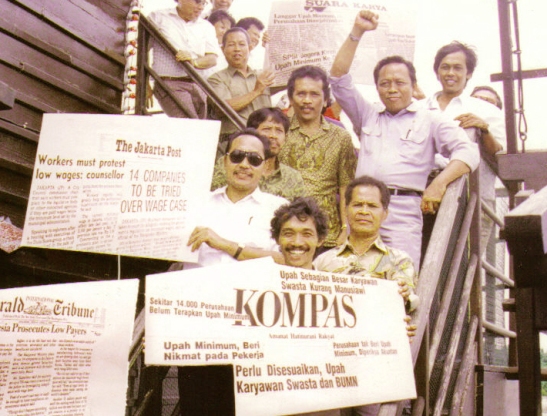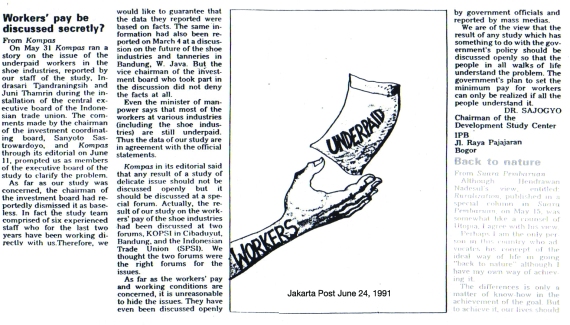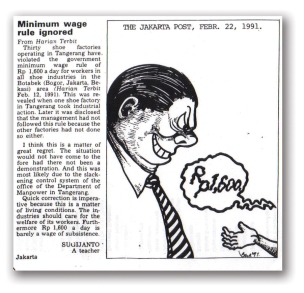Jakarta workers fight for higher wages



The minimum wage of eighty-six cents a day was being widely flouted by Korean- and Taiwanese-run factories, a fact we were able to get the Asian Wall Street Journal and the Economist magazine to report the following year, after documenting widespread non-compliance with that miserable minimum wage. Using a Human Rights grant from USAID, we interviewed more than five thousand workers at four hundred factories around Jakarta.
The results of the compliance survey taught us something about trying to help workers in a seemingly hopeless situation – the best thing that we can do, often, is to collect information and beat people over the head with it. We could now prove that workers were being cheated and enforcement officials were completely ineffective (except in seeking bribes, one could reasonably assume). Official figures from the Indonesian Manpower Ministry showed that the 700 labor-standards inspectors had found over 16,000 violations in 1988, while fewer than twenty of these cases made it to the first adjudicative step!
Little did I know at the time, however, that the process of collecting information itself was important in building workers’ skills and fomenting pressure for change. (Sociologists called this Participatory Action Research, I later found out.) Just before leaving Indonesia in 1992, I won approval from AID officials for a survey thirty times larger than the wage study. During the period 1993-6, there were over two hundred surveyors in the field and more than 155,000 workers were interviewed. The most important result was a four-fold increase in the number of strikes; when the information-gathering process itself produced no amelioration, the workers engaged in self-help by demanding changes from factory managers. In addition, the support for independent unions rose dramatically, while labor-protest generally won legitimacy through sympathetic press reports (domestic and international). Finally, public displeasure with military units breaking up the strikes of cheated and abused workers began to grow; U.S. Trade Representative, Mickey Kantor, felt it necessary to secure Suharto’s pledge to get troops out of strike-breaking duty before Bill Clinton’s visit to Jakarta in 1996.
